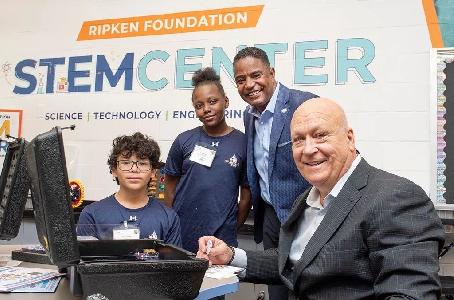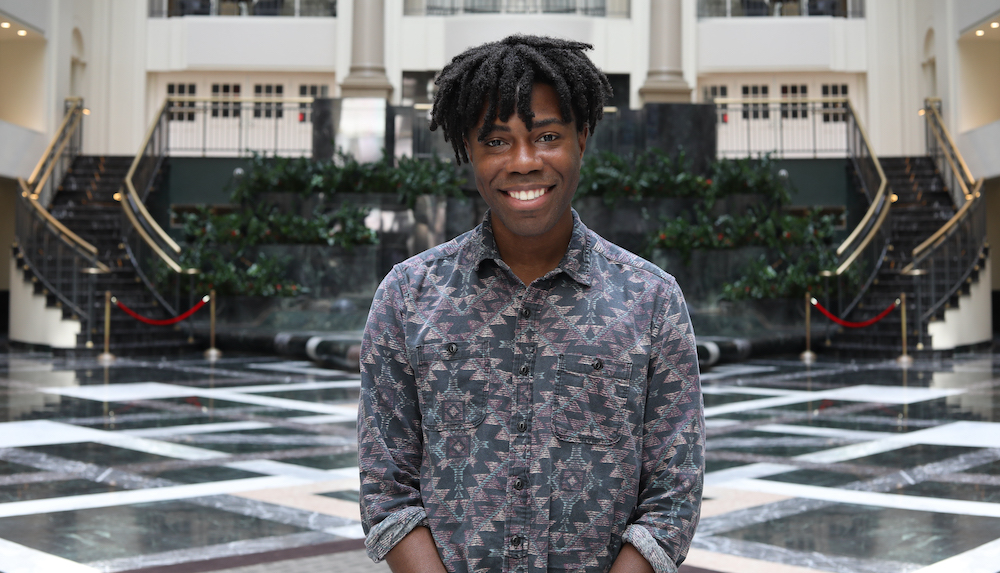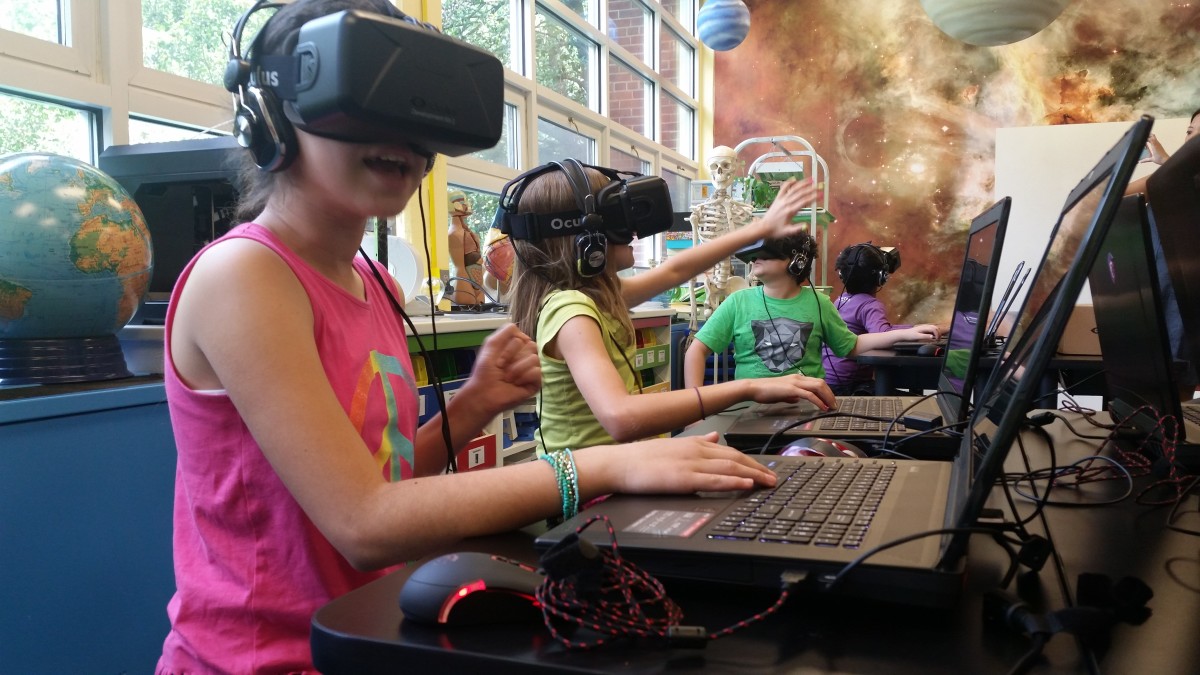Virtual and augmented reality technology that has offered new experiences in gaming and entertainment is showing signs of more use in education in recent years. As with any new technology, however, wider adoption won’t only be a matter of getting the tools working right.
In a virtual event hosted by Baltimore’s Think on April 20, the region’s latest Potential of Edtech meetup pulled together four virtual and augmented reality specialists to talk about a future where education and AR/VR meet.
The panel featured Denise Mendez, principal software engineer at Microsoft’s mixed reality group, Will Gee, CEO of Balti Virtual, Rob Petrosino, head of innovation at PeakActivity, and Michael Wheeler, CEO of Reality Lab, LLC. The session was moderated by Emily Levitt, VP of education at Sylvan Learning.
The event included a look at the tools and capabilities for VR and AR in education that are now in use.
Mendez detailed Microsoft’s mixed reality ecosystem, which includes devices like the HoloLens and dev platforms like Azure.
“There are things that Microsoft is doing to make [VR] technology more accessible,” said Mendez. She talked about open-source platforms like Babylon JS, which opens up VR/AR for web-based platforms. Youth start off using cell phones for VR-based learning, then transition to products like HoloLens as more resources are available and “start to bring them into some of these STEM fields,” Mendez said.
Gee, of Port Covington-based XR firm Balti Virtual, presented case studies on successes his company had with VR learning, from a training program with the Baltimore Ravens that has athletes simulating gameday formations to an immersive PowerPoint for classified government tech demonstrations.
Through it all, Gee learned a lesson about making VR accessible to the widest swath of people.
“The interface just has to make sense. It has to be natural,” he said.
The event also looked forward. Throughout, the panelists gave their collective readings of the tea leaves and thoughts on when and how they except VR to become more mainstream, and the use of VR technology will become widespread in schools. One requirement will be an education system that is more aligned around jobs that involve technology.
‘We’re still teaching kids how to work in a factory, we’re not teaching kids how to work in a digital world,” said Wheeler. “We need to look at a different philosophy on what education is.”
On the developer side, panelists talked about how there’s lots more funding for VR in the entertainment field than education. It brings a question for those who want to advance the tech talent pool to wrestle with: Why design for education when a dev can make billions making the next Fortnite?
On the hardware side, the technology is advancing, but it is still two or three years away from its most accessible form, panelists said. Think of now as the beeper or pager era for VR, while the next evolution is cell phones.
And there’s need for more talk about the elephant in the room: “To pivot on the dime in the education system is extremely difficult to do,” said Petrosino. But he also had hope for an edtech future that brings together experts from across disciplines.
“Allowing people to be subject matter experts in technology and others [to be] subject matter experts in education, and allow those ecosystems to coexist and intermingle is going to be a key part,” he said.
Donte Kirby is a 2020-2022 corps member for Report for America, an initiative of The Groundtruth Project that pairs young journalists with local newsrooms. This position is supported by the Robert W. Deutsch Foundation.Join the conversation!
Find news, events, jobs and people who share your interests on Technical.ly's open community Slack

Baltimore daily roundup: The city's new esports lab; a conference in Wilmington; GBC reports $4B of economic activity

Baltimore daily roundup: Find your next coworking space; sea turtle legislation; Dali raided and sued

Baltimore daily roundup: Johns Hopkins dedicates The Pava Center; Q1's VC outlook; Cal Ripken inaugurates youth STEM center


